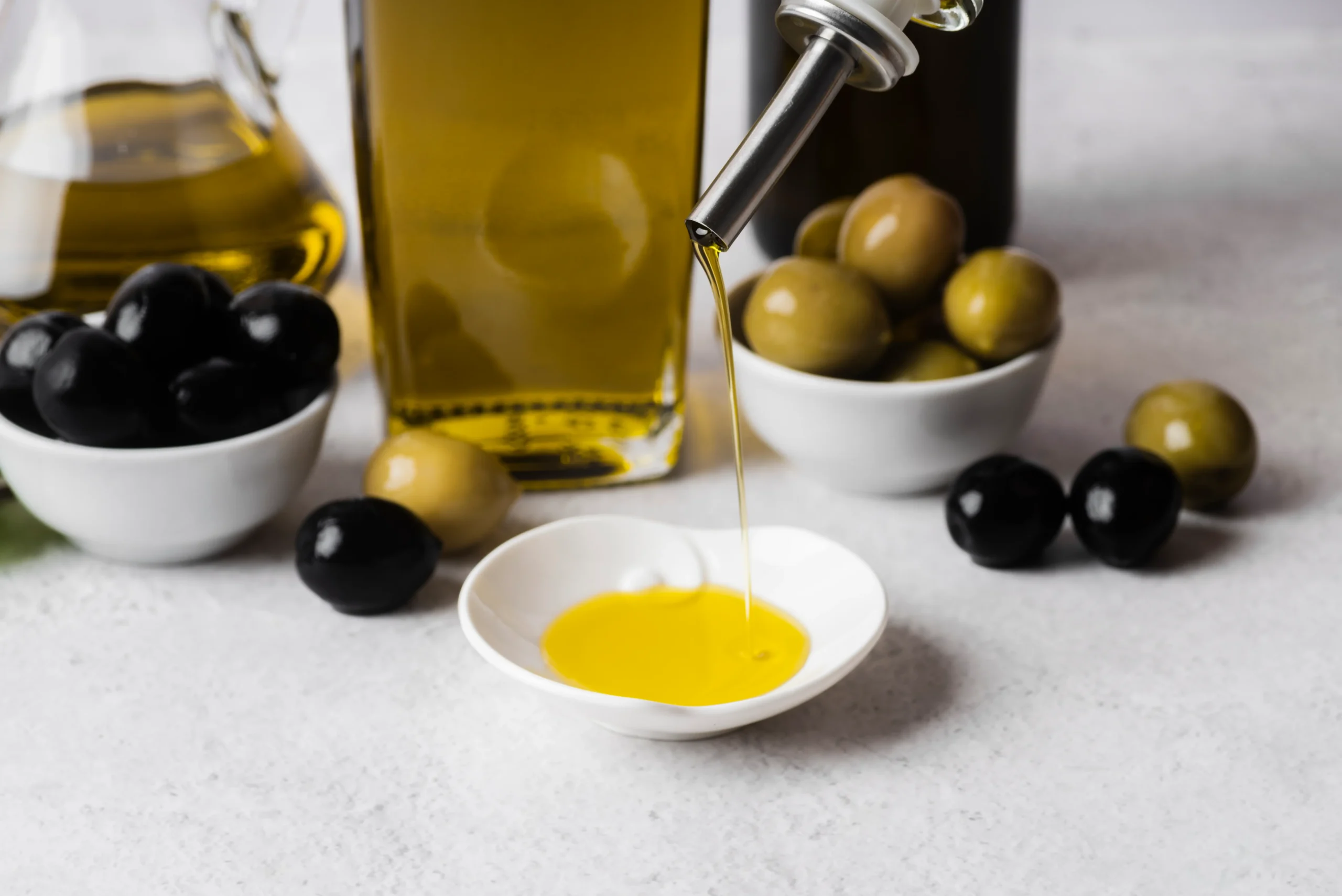Olive oil is a fundamental element of the Mediterranean diet and has been recognised for its many health benefits. In this post, we explore its properties, why it is so valuable to the body and how you can make the most of it in your daily life.
Health Benefits of Olive Oil
Antioxidant and anti-inflammatory properties
Extra virgin olive oil is rich in antioxidants and anti-inflammatory compounds, which help fight oxidative stress and reduce inflammation in the body. These properties are essential for preventing chronic diseases such as diabetes, cardiovascular problems and certain types of cancer.
Improving Cardiovascular Health
Studies show that regular consumption of olive oil can improve cardiovascular health, thanks to its ability to reduce bad cholesterol (LDL) and increase good cholesterol (HDL). This helps to keep blood pressure at healthy levels and protect the heart.
Digestion and Nutrition Support
Olive oil aids digestion and acts as an excellent emulsifier in cooking. In addition, its richness in healthy fatty acids, such as oleic acid, makes it a perfect ally for nourishing the skin and improving the functioning of the immune system.
Olive Oil and the Mediterranean Diet
The Mediterranean diet, recognised worldwide for its health benefits, is based on the consumption of fresh, natural foods. Olive oil is the mainstay of this diet, providing not only flavour but also a nutritional profile that promotes general wellbeing. Incorporating it into salads, dressings, stews and even desserts can transform a meal into a healthy and delicious experience.
Tips for Incorporating Olive Oil into Your Diet
- Use extra virgin olive oil: Its extraction method and quality guarantee the preservation of its nutrients.
- Dress your salads: A drizzle of olive oil adds a healthy and delicious touch to any dish.
- Low temperature cooking: To preserve its nutritional properties, avoid overheating the oil.
- Experiment in baking: Some dessert recipes benefit from the flavour and texture provided by olive oil.
Frequently Asked Questions (FAQ)
What are the main health benefits of olive oil?
Olive oil stands out for its antioxidant and anti-inflammatory properties, improves cardiovascular health, helps regulate cholesterol and aids digestion, and is essential in the prevention of various diseases.
What type of olive oil is the most recommendable?
The extra virgin olive oil is the most recommended, as it is obtained by mechanical methods without chemical processes, which guarantees a higher content of antioxidants and bioactive compounds.
How much olive oil should be consumed per day?
Although the ideal amount may vary according to individual needs, it is recommended that you consume between 2 and 4 tablespoons daily as part of a balanced diet to take advantage of its benefits without exceeding the caloric intake.
Can I use olive oil for cooking at high temperatures?
It is preferable to use olive oil for cooking rather than olive oil. low or medium temperature. In this way, their nutritional properties remain intact and the formation of harmful compounds is prevented.


